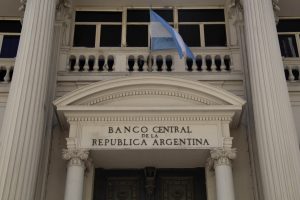On May 28, 2020, through Communiqué No. “A” 7030, the Argentine Central Bank (the “Central Bank”) set a series of new restrictions to the access to the Foreign Exchange Market (the “FX Market”). Mainly, aimed at obliging companies to use their liquid foreign assets for the payment of foreign obligations before requesting access to the FX Market.
Use of external liquid assets prior to the access to the FX Market
The Central Bank provides that, as of May 29, prior written authorization from the Central Bank will be required to access the FX Market to carry out expenditures[1] unless the interested party files an affidavit stating that, at the time of applying for access to the FX Market:
- all of its foreign currency holdings in the country are deposited in local bank accounts and that it has no available external liquid assets; and
- undertakes to transfer to Argentina and exchange for Argentine pesos through the FX Market (within five working days of its availability), any proceeds received abroad from the collection of loans granted to third parties, the collection of fix-term deposits or the sale of any type of asset, when the asset has been acquired, the deposit constituted or the loan granted after May 28, 2020.
In our experience, the authorization from the Central Bank is not obtained in a timely manner, which in practice implies an effective restriction of access to the Exchange Market for those who have external assets.
The Central Bank excludes from the aforementioned limitation the expenditures corresponding to: (i) transactions carried out by financial institutions on their own account, (ii) cancellations of foreign currency financings granted by local financial institutions for purchases in foreign currency made by means of credit and purchasing cards, and (iii) payments abroad made by non-financial card issuing companies for the use of credit, purchase, debit or prepaid cards issued in the country.
Another relevant point to consider for the purposes of this new regulation is that the affidavit must be consistent with what is stated in the quarterly and annual presentations of the reporting information regime regarding foreign debt and direct Investment (Relevamiento de Activos y Pasivos Externos) provided for in Communiqué No. “A” 6401 (as amended).
Restrictions on Payment of Imports
Until June 30, 2020, access to the FX Market for the payment of imports (and prepayments) will only be allowed if: (a) the aggregate amount of import payments and prepayments made by the interested party during the year 2020 – including the intended payment – does not exceed (i.e., is less than or equal to) (b) the aggregate amount of imports of goods that are registered in its name in the system for monitoring the payment of imports of goods (“SEPAIMPO”) and that the clearing custom (i.e., nationalization) was between January 1, 2020 and the day prior to access to the FX Market.
Those who register more payments made through the FX Market during 2020 for these concepts than effectively nationalized imports must have prior written authorization from the Central Bank to make new payments.
Certain entities (such as those in the public sector) and those payments of imports with pending clearing customs are excluded from the aforementioned requirement as long as prepayments made as of September 1, 2019 do not exceed the equivalent of US$ 250,000.
In line with the restriction detailed in the previous section, this limitation aims to reduce the amount of payments for imports with pending clearing customs or prepayments, prior to the payment of new imports or prepayments.
Restriction on payment of capital services to related parties
On the other hand, the Central Banks establishes that – until June 30, 2020 – prior written authorization from the Central Bank is required to access the FX Market to cancel capital services of foreign financial indebtedness when the creditor is a related party.
As mentioned above, in our experience, the authorization from the Central Bank is not obtained in a timely manner, which in practice implies an effective restriction of access to the Exchange Market for these purposes.
Extension of the restriction period for transactions with public securities
And finally, the restriction established by Communiqué No. “A” 7001 to carry out purchase and sale operations involving public securities in local currency against foreign currency for those who require access to the FX Market is extended to 90 days before and 90 days after the access to the FX market.
This report should not be considered as legal or any other type of advice by Allende & Brea or as including all the subjects of the topics described herein.
[1] [1] (1) payment of imports and other purchases of goods abroad; (2) payment for services rendered by non-residents; (3) interest payments on debts for imports of goods and services; (4) distribution of profits and dividends; (5) payment of principal and interest on foreign financial indebtedness; (6) payment of publicly registered debt securities in the country denominated in foreign currency and obligations in foreign currency between residents; (7) payment of debts in foreign currency of residents by trusts set up in the country to guarantee the provision of services; (8) purchase of foreign currency by Argentine residents to be applied simultaneously to the purchase of a real estate in the country with mortgage credits; (9) purchase of foreign currency by other residents (other than individuals and legal entities) with saving purposes and for operations with derivatives; (10) other purchases of foreign currency by residents with a specific application; and (11) payment of premiums, provision of guarantees, and cancellations corresponding to interest rate hedging contract transactions for residents’ obligations abroad.


